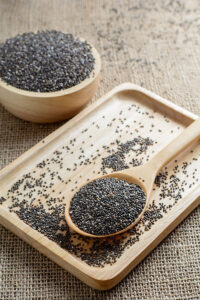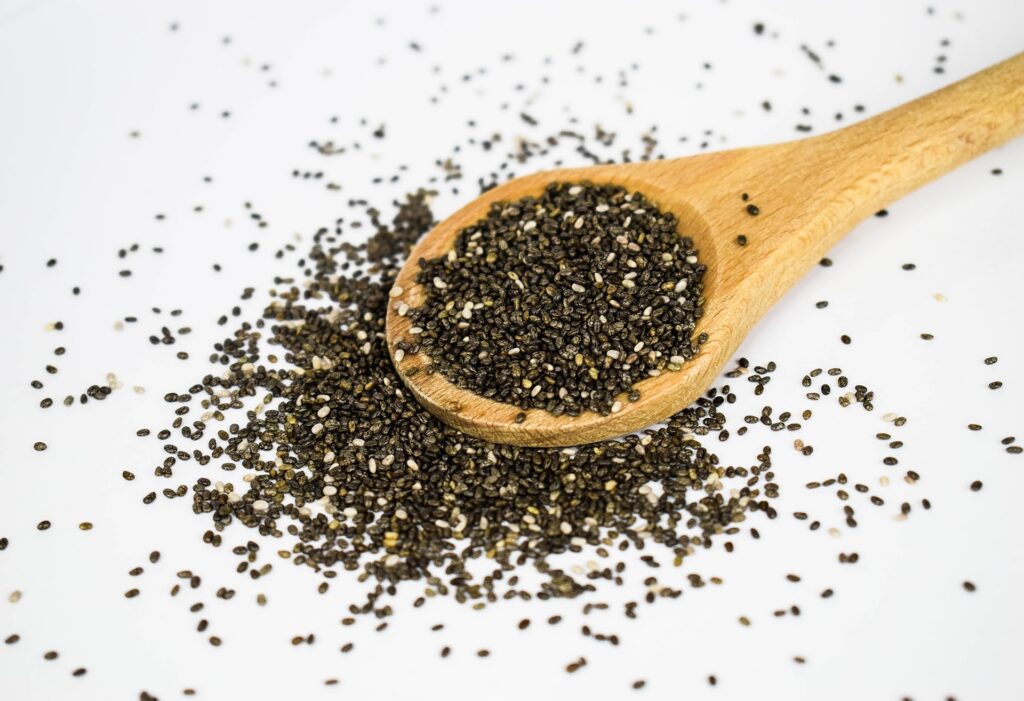
Chia seeds (Salvia hispanica), also called Mexican chia or salba chia are the edible seeds of a flowering plant from the mint family, native to Mexico and Guatemala.
Historically, these seeds were vital to the Aztec and Mesoamerican cultures, forming an important part of these peoples’ diets, and being used for medicinal and religious purposes. Aztecs commonly roasted the chia seeds and ground them into a flour, and warriors and messengers relied heavily on whole the seeds for nourishment on long journeys. Chia was a bit of a forgotten food for a while, as the Spanish conquers banned its cultivation due to its cultural and religious significance. It was not until the early 1990’s when an agricultural engineer Wayne Coates began promoting the plant, that chia begun to be recognized for its health benefits.
Today, chia grows commercially in many countries including Argentina, Australia, Bolivia, Peru, and the United States. The seeds are widely recognized as a nutrient-dense addition to healthy diets.
Nutritionally, chia seeds are one of the most-concentrated sources of alpha-linolenic acid (ALA), a plant-based omega-3 fatty acid. Health claims about chia seeds include reducing appetite and weight, lowering triglycerides, and improving blood sugar levels in type 2 diabetes.
Allergic reactions to chia seeds is un-common, though not impossible. Should you see any signs of allergic reaction, stop consuming immediately.
Sources:
Encyclopedia Britannica, https://www.britannica.com/plant/chia
WebMD, https://www.webmd.com/diet/health-benefits-chia-seeds#1

